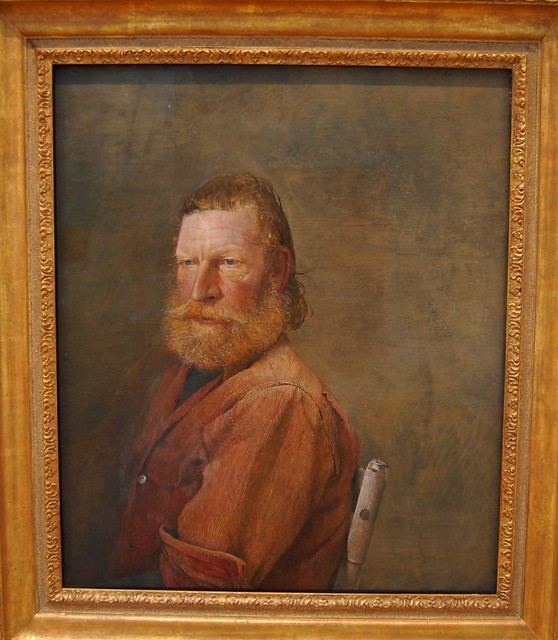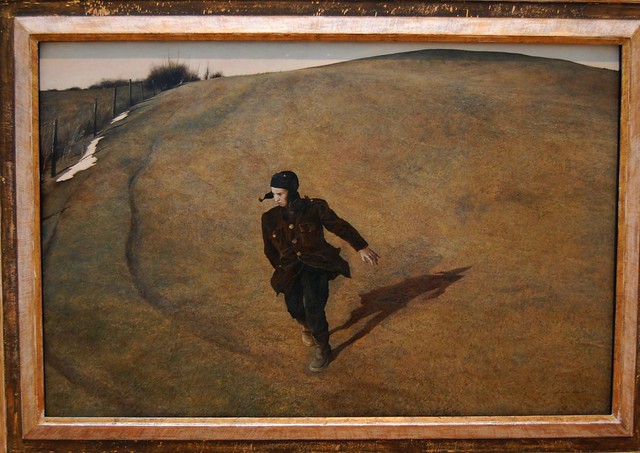
A couple weeks ago I found myself dreadfully weary. A busy work schedule overlaid with the pervasive negativity of the US elections had drained me.
I first decided to shut off the news for a while—eliminate that negativity. I tried to draw better boundaries around my work day (never easy for me). Then, when an email about a piano concert at the local art museum showed up in my inbox, I immediately forwarded it to a friend and said Let’s go!
We spent a half hour or so walking in the modern gallery, the American gallery, and the sculpture collection. Then we meandered to the cozy auditorium to hear an upcoming young pianist play de Falla, Rachmaninoff, and Paderewski.
Oh, I needed that.
The Need for Rest
In a class I’m taking, the facilitators regularly lead guided meditations. This past week the focus was on rest—as in both sleep and down-time.
There’s plenty of research that supports the need for rest generally and sleep in particular. Significant risks appear if we don’t get enough rest—health problems, difficulty thinking, impaired judgment, increased frequency of accidents, weight gain. On and on.
And yet many of us still burn the candle at both ends. (Anyone else out there like me with the Midwestern Protestant work ethic baked into your psyche? Do you feel guilty if you are not being “productive”? Oy.)
So our meditation leader asked us to focus on questions like:
- Are you getting enough rest?
- How do you feel when you do get enough rest?
- Do you plan for rest?
- What can you honestly commit to in terms of rest?
As part of the writing process we know the importance of letting our work rest so we can see the words with fresh eyes. But to thrive creatively, rest—sleep, space away from work—is necessary but not sufficient.
The Need for Restoration
One of my clients described her frustration with her manuscript. The busyness of life kept intruding; she struggled to focus; nothing would click. She said she was doing “self-care,” but I could feel her weariness through the phone.
After a few questions, I observed that she seemed to be trying to find space for rest and the emptying out of frazzling tasks, but that she didn’t appear to be filling up with anything that nourished her.
We use immense energy in whatever we create. In her book The Artist’s Way, Julia Cameron assigns “Artist Dates,” once-a-week expeditions to explore something fun.
“Artist dates are assigned play. … [T]hey feed our creative work by replenishing our inner well of images and inspiration.”
Creation—writing, painting, developing a marketing campaign—requires giving energy to your project. Your creative-energy well has a certain capacity. You can only tap that well for so long before it runs dry. You must restore it.
My client and I quickly developed a list of “happy to-do’s”—things that weren’t “productive,” things that didn’t lead to a specific outcome. Activities that simply brought pleasure: reading books all day, sitting on the beach, taking a knitting class.
She reported back later—in a much lightened voice—how much she enjoyed these activities. Did they resolve the manuscript problems? Not exactly, but the pleasure has given her more energy and equanimity to deal with her challenges.
When to Pursue a Little Extra Rest and Restoration
Sure, we’d all like to be in balance and feeling rested and restored all the time, but you know as well as I do that life doesn’t always cooperate. Make small improvements where you can, but pay special attention…
- When you’ve been pushing hard on a project – Maybe you’ve worked extra hours to hit a deadline. Or the muse has been speaking and you didn’t dare stop taking dictation. Did you just finish final exams? After the push, pat yourself on the back and allow yourself recovery time.
- When you face crisis, chronic stress, or disruptive change – A family member’s sudden illness requires significant caregiving time. You work in a dysfunctional environment that you haven’t yet been able to escape. Your spouse gets a new job that requires relocation. Crisis, stress, and change (even good change) demand enormous energy. It can be easy to overlook the need for rest and restoration. If you need help in these situations, check out After the Shock, a practical and comforting guide for building resilience.
- During the holidays – Holidays can be a double-edged sword. Many of us look forward to the fun and joy of spending extended time with family and friends. At the same time a whole lot of effort goes into not only the number of holiday events but the complexity of the events. If you’re a Christmassy person but get stressed out by it, I recommend Unplug the Christmas Machine. I first read it probably 20 years ago, and, yes, it feels a bit dated now, but it was an eyeopener for me about how to choose what matters most to avoid overwhelm. (Note: For me, “the holidays” encompass the Thanksgiving-Christmas-New Year’s stretch, but the need for extra attention to rest and restoration is relevant to other significant periods of festivities as well—say, weddings.)
On that note, we’re nearing Thanksgiving as I write, and I have been struggling to finish this blog post. It’s time to take more of my own advice, but before I go, here are some of the things that restored me most recently.
At the North Carolina Museum of Art, I love to visit the American gallery for several favorite pieces. The Frederick Carl Frieseke painting at the top of this post makes me smile. When I look at it, I feel my shoulders relax. Wikipedia offers several more images of Frieseke’s work.
Andrew Wyeth is one of my favorite artists (I also like N. C. and Jamie). NCMA has a couple of Wyeths. Below you’ll see Sea Dog and Winter 1946. (Incidentally, I found the following photos on Flickr from a gentleman who apparently liked my gallery too! Thanks, JR P/UGArdener! Here’s his NCMA album.)

And the inimitable Georgia O’Keeffe’s Cebolla Church.
The pianist I heard perform was Alexia Mouza. She played with great strength and verve. There are many recordings on YouTube. Here is a Chopin polonaise I enjoyed.
My favorite piece Mouza performed was by Manuel de Falla; unfortunately I cannot recall the title. However, you may be familiar with de Falla’s “Ritual Fire Dance.” Here is Artur Rubenstein performing it.
After the concert I was inspired to find a recording of Benjamin Britten’s Hymn to St. Cecilia, which is a setting of a poem by W. H. Auden to the patron saint of musicians. I sang it in college and it has remained a favorite. This is a masterful performance by the Cambridge Singers.
And with that, I encourage you to get rest and time away from work as well as to restore yourself with whatever happy to-do’s fill your creative well. Til next time…


